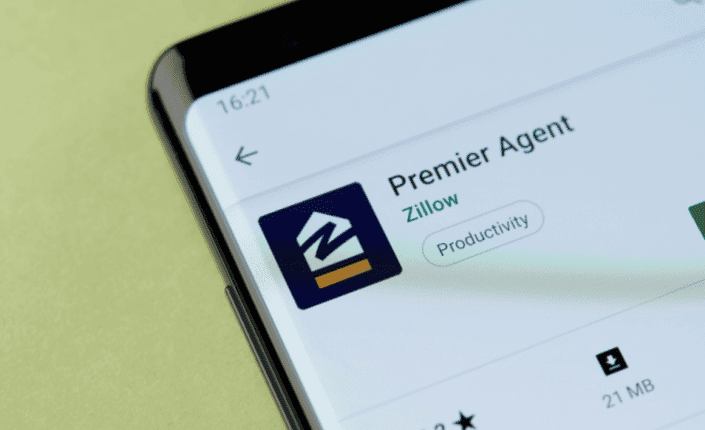
The narrative around Zillow has been pretty negative ever since the U.S. portal giant kicked its expensive house buying habit back in November 2021. The bad PR has come from litigation, selling homes to shady institutional buyers, spats with rivals and a plummeting share price among other things.
It's not just the PR team at the Seattle-based firm that has been working hard since then though...
Zillow's 3D touring tech is now firmly established in the industry and is even being used on rival platforms with augmented reality tech in the works for its New York portal, StreetEasy. The company's big iBuying firesale is progressing better than expected and there is the prospect of a 'housing super app' in the pipeline as well.
The one thing that can really change the talk around Zillow though is what it does best and what it has been doing consistently well since it was founded in 2006: marketing houses.
Zillow's core business generated $1.8 billion in revenue in 2021. That figure alone is impressive but in the context of its pre-pandemic results and the comparison to its international peers, it becomes potentially narrative-changing.
Of all the specialist real estate portal companies that declare the revenue of their domestic real estate listing activities, Zillow's growth between 2019 and 2021 is only bettered by the Russian portal Cian. For the narrative to shift, that growth needs to be kept up.
After detailing the whims of the housing market and teasing the 'housing super app' Zillow's CEO had a prediction for shareholders in his letter to them at the end of FY21.
"We expect all of these efforts to translate into $5 billion in annual revenue and 45% EBITDA margin by the end of 2025"
Rich Barton's statement was not only bold in terms of what it said but was actually formatted in bold in the letter. Zillow's shareholders have had a hard time of late and would be forgiven for dismissing these numbers as wishful thinking. If we make some assumptions based on the past performance of Zillow's IMT segment, however, the company's goals don't look so 'pie in the sky'.
Zillow's IMT segment - which houses its flagship Premier Agent lead gen product as well as rentals, display and the newly acquired showing management platform ShowingTime - has grown revenue at an average of 22.5% over the last three years. If Zillow can keep that up it works out at $4.2 billion in 2025.
Obviously, the projection is assuming a lot here, not least the continuation of a white-hot U.S. housing market. Zillow doesn't appear to be taking anything for granted though and is taking measures to mitigate the impact a cooling housing market might have on its core business.
One significant development here, and a story which went slightly under the radar, was the news that in two major U.S. cities Zillow now only works with its commission-based Flex model. What this effectively means is that the company has effectively kicked hundreds of agents off its normal Premier Agent model - which charges upfront for leads - and now only works with a few select agents in those markets charging a percentage (35% according to some reports) of their fee if and when a transaction closes.
If this way of working is rolled out on a larger scale, the shift in the agent-portal power dynamic could be huge. Some in the industry are starting to catch on...
Referrel-fee solutions are a dangerous drug for a growing real estate team.
In small doses, it's fine.
But when it becomes a larger % of your overall GCI, you are entirely dependent on another company to survive.
That should scare the hell of you.
— Jimmy Mackin | CEO of Curaytor (@jimmymackin) April 28, 2022
In theory, Zillow would no longer have to play nice with all agents, only the small percentage it works with. Agents would have to play by Zillow's rules to even get on the program in the first place. There would also be a shift in terms of the importance of certain metrics. The quality rather than the volume of traffic would be of primary importance and transaction volumes and GTV rather than leads will take centre stage in reporting.
Zillow claims that some 25% of home buyers clicked a button to connect with its agent customers in 2021. According to some reports, the Flex program is already generating more than 20% of the revenue coming from these connections Zillow makes. That percentage is even higher at rival Realtor.com and there's no discounting that when CoStar's residential challenge comes that it won't take on a similar commission-based model.
The future of the U.S. portal market looks like it will be competitive, lucrative and commission-based.